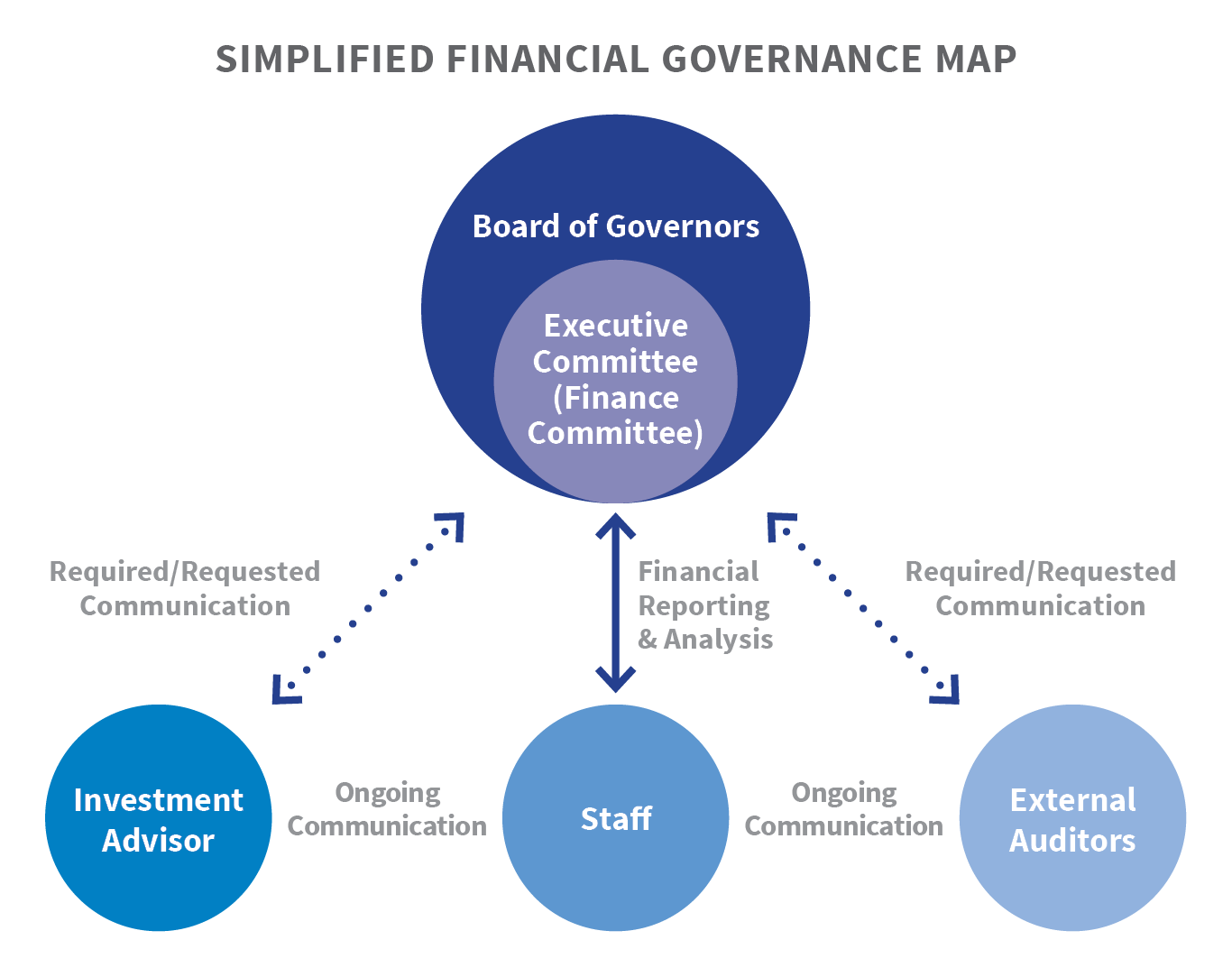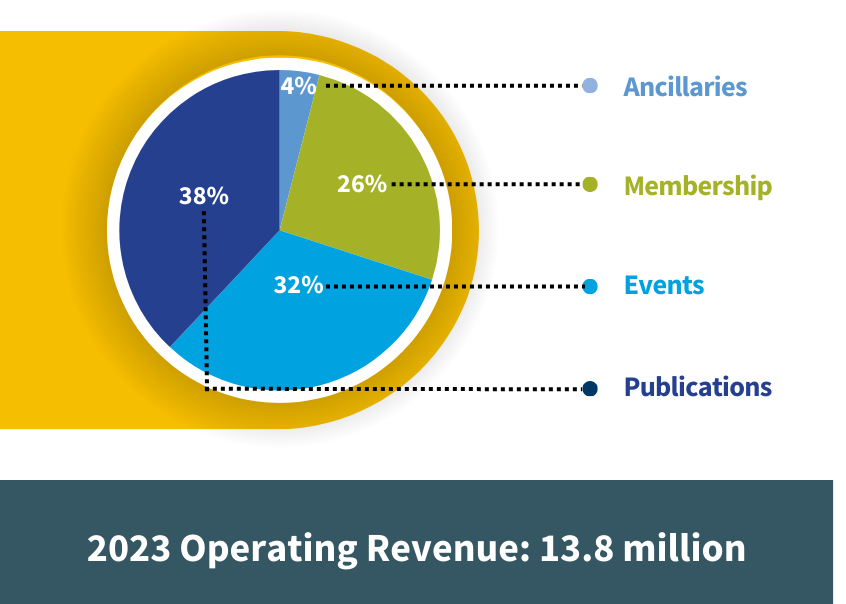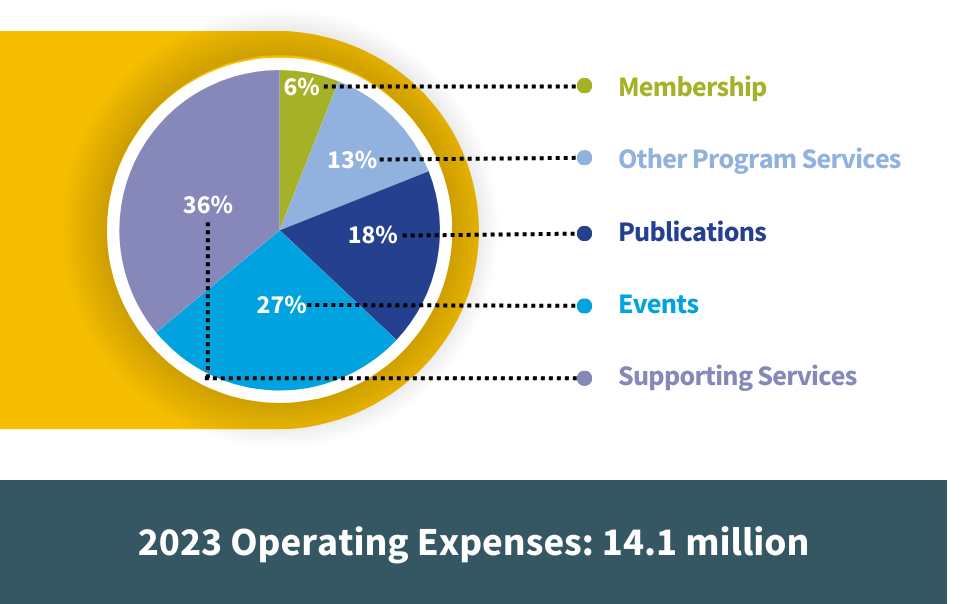2023 Finances
Finances
The Academy of Management’s financial performance is stewarded by our Board of Governors, with the Executive Committee directly responsible for ongoing fiscal affairs, budget, the annual audit process, and oversight of the investment portfolio. A Finance Subcommittee assists the Executive Committee in navigating through detailed financial issues.
Throughout the year and during quarterly meetings, the Board and Executive Committee review our financial performance through detailed, quantitative, and qualitative financial reports prepared by the Academy’s Executive Director and Chief Financial Officer. On an annual basis, the Board and Executive Committee review and approve the Academy’s fully audited financial statements, conducted and completed by an external auditing firm that has maintained contact with the Executive Committee throughout the process. Investment advisors also periodically meet with the Executive Committee to review the portfolio’s performance. Through these committees and processes, each supported by the Academy’s professional staff and external financial experts, the Academy ensures sound financial stewardship.
On a periodic basis and depending on the topic, reports provided compare the AOM to relevant association benchmarks, both in its operations and in its practices. This occurs most often when applicable survey data are updated and made available to the association community, or given the topic being discussed (comparison of dues rates, for example). The headquarters staff also calculate key financial and operating ratios to assess AOMs financial performance and benchmarks itself against similar organizations (by 501c3, revenue/expense, membership size, and composition). The newest association operating ratio report has recently been released so AOM will complete association benchmarking again in the coming year.
Our annual financial performance is the product of revenue streams and expenses. The Academy’s revenue is generated from three primary sources: membership dues, annual conference, and publishing services. Expenses are functionally categorized as program and services and general administrative costs.
Our financial statements do not record extensive volunteer contributions from our members and involved universities.

Operating Revenue
In 2023, the Academy’s operating revenue was $13.8 million, with events, membership, and publications contributing approximately 32%, 26%, and 38%, respectively. The remaining 4% of revenue (Ancillaries) is generated through sponsorships received by Divisions and Interest Groups and other services. Membership dues are based upon the number of paid members within the Academy during the fiscal year. Event revenue includes registration fees, as well as sponsorships, exhibit sales, and career services. Publishing revenue is based upon library subscriptions, licensing arrangements, permissions, and advertising. Operating revenue is impacted by changes in member counts, conference registration, and changes in publishing income.

Operating Expenses
In 2023, the Academy’s operating expenses were close to $14.1 million, with program services and supporting services. Costs were contributed from events 27%, membership 6%, publication 18%, other program services 13%, and supporting services 36%. Operating expenses are impacted annually by conference venues and ancillary costs, publishing production and delivery, and any changes in general operating overhead. Programs and services expenses are related to the direct costs necessary to support events, as well as ongoing member and division and interest group services, including academic program submissions support, information technology systems and platforms, direct venue expenses, member communications, and governance. Supporting services typically include headquarter staff, office rental, insurance, legal fees and other overhead expenses. A significant portion of technology and headcount expenses supports multiple programs and services. As a result, these expenses are not allocated to any specific program.

Investments and Reserves
As of December 31, 2023, AOM investment portfolio was $53.7 million. Our investment portfolio is governed by an Investment Policy Statement, adopted by the Board of Governors in 2016 and reviewed annually. This policy specifies the Academy’s investment risk profile, asset allocation parameters, and appropriate market benchmarks to measure and assess performance. The purpose of investments is to fund AOM’s strategic initiatives and to provide financial stability in a changing organizational landscape that affects the non-dues revenue sources upon which we rely. Use of investments is determined by the Board of Governors. Overall, our investment mix is moderate when compared to like organizations and includes, but is not limited to, holdings in equity and fixed income, and select alternative investments. Investment portfolio return fluctuates with prevailing global macroeconomic and market trends.
Audited Financial Statements
![]() Member-only access. Click the profile icon at the top of this page to sign in to your AOM account and view the 2023 Audited Financial Statements*.
Member-only access. Click the profile icon at the top of this page to sign in to your AOM account and view the 2023 Audited Financial Statements*.
*Approved by Board of Governors vote, April 2023